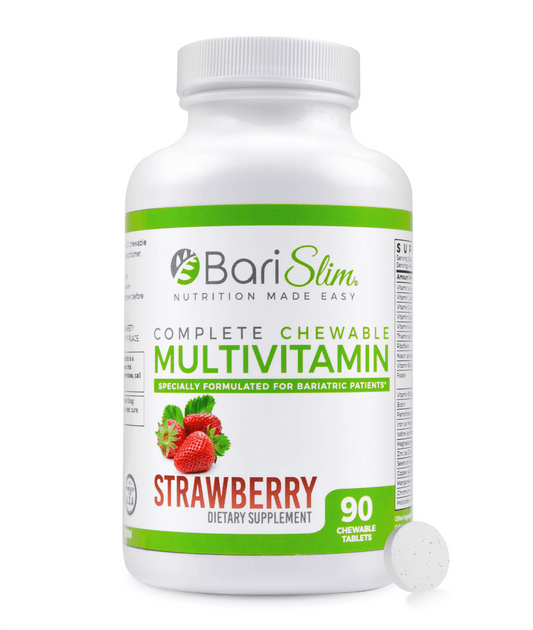Introduction
Obesity affects every element of life. Relationships, careers, self-image, and health all suffer due to this disease. Gastric sleeve surgery, also known as sleeve gastrectomy or vertical sleeve gastrectomy (VSG), is a type of bariatric surgery that limits how much food can be consumed.
The procedure is completed laparoscopically for a faster recovery and less risk. The gastric sleeve surgery will leave a minimal scar due to the nature of the methods. A surgeon will remove the left side of the stomach, leaving a narrow, sleeve-shaped tube to serve as the stomach. The food will progress through the digestive system in the same fashion as it did before, but the patient will be full without as much food.
The average weight loss after gastric sleeve surgery is between 50-90 pounds, and the gastric sleeve cost may range between $17,000-26,000. As more and more Americans experience obesity and the resulting health consequences, insurance companies are covering the procedure more frequently.
Paying for the Procedure
The gastric sleeve surgery cost doesn’t have to be prohibitive. Your health matters enough to secure funding for it, whether or not your insurance will pay the greater portion. You can secure a medical loan, arrange for a payment plan with the facility, open a Care Credit account, liquidate assets, use a health savings account, or even take out a personal loan. The results of your surgery make the cost of your gastric sleeve well worth whatever arrangements you have to make.
Preparing for the Procedure
Before undergoing the procedure, you’ll need to be verified as a qualified candidate. In addition to demonstrating that you’re not an abuser of drugs or alcohol, you should also demonstrate your dedication to a lifestyle change – starting with a commitment to a gastric sleeve pre-op diet and exercise program.
Qualifying patients are those with severe obesity who have made several prior, serious efforts at weight loss without success. Patients with a BMI over 40 or a BMI of 35 or greater and a weight-related health condition should consider the benefits of the procedure.
To prepare for the post-gastric sleeve diet and transition to a new normal of eating and exercise, you should participate in nutritional and psychological preparation. This program will include training, exams, and tests – all designed to prepare you for a safe surgery and a successful weight-loss outcome.
Potential dangers for your surgery largely stem from how well you choose to prepare. Smokers should quit well before the procedure because of its effect on recovery and breathing. The pre-op diet for gastric sleeve preparation is necessary to keep your surgery safe as well. Most obese patients will have fatty deposits around and in the liver, enlarging it and preventing safe access to the adjacent stomach. Gastric sleeve pre-op diet cheating will limit pre-surgical weight loss and possibly pose a danger.
Potential Dangers Related to the Procedure
As with any surgery, anesthesia poses a risk. You must make sure to tell your surgeon and anesthesiologist of any past history of complications while undergoing a procedure. During recovery, you should also beware of bleeding, infection, and leg circulation, as you would with any surgery.
Risks related to the gastric sleeve include difficulty with nutrient absorption, increased gastric reflux, and a narrowing of the stomach sleeve.
What to Expect During the Procedure
Your experience of the surgery will be under anesthesia. The surgeon will insert laparoscopic tools through several small incisions in your upper abdomen. With a sizing tube placed into your stomach as a guide, the surgeon will staple the stomach into two separate pieces, creating a sleeve. The left section will then be removed, and the surgeon will ensure that the vertical sleeve created doesn’t leak.
Post-Surgical Expectations
In most cases, the day after your procedure, you’ll leave the hospital, but you’ll be on a strict diet for the foreseeable future. The first two weeks will be strictly liquid intake, gradually moving to thicker liquids, followed by pureed foods, softer foods, and eventually regular foods.
Your new life will focus on eating small, nutritious meals, chewing thoroughly, and gradually returning to regular eating. If you eat too much or too quickly, you will cause yourself pain and nausea. Staying hydrated is also critical during this period. Sufficient water intake and fiber will prevent the potential for constipation after gastric sleeve that can occur.
Following your gastric sleeve, vitamins will be a regular part of your life on a daily basis. The procedure can cause issues with absorbing sufficient nutrients, so you’ll need to plan for a multivitamin, calcium, vitamin D, and vitamin B12 supplement, as well as other vitamins as needed. Your life will also include regular blood work to maintain appropriate vitamin and mineral levels.
The weight loss you experience will likely max out after 18 months to 2 years, and some patients may regain some weight, especially if they’re not diligent about nutrition and movement. Your gastric sleeve may grow larger as time passes, allowing you to eat more. Proper support, dietician’s care, and good habit development will prevent the weight’s return.
The point of this procedure is to prevent overeating, and the gastric sleeve diet without surgery is effective when patients are able to make this drastic commitment or when they’re unable to afford the vertical sleeve gastrectomy cost. However, sustaining this plan is difficult for just about all obese patients. The cost of the gastric sleeve surgery is well worth it to those who need help to restrict eating long-term.
Those in the throes of obesity are generally willing to do practically anything to lose weight but lack the structure and commitment required to do it without help. If you’re in this position and wondering how much gastric sleeve surgery costs, the costs can vary depending on your location and insurance coverage, but it is well worth the money as long as you’re willing to do the work on your end required for successful weight-loss outcomes.
Also Read: Best Surgical Procedure for Weight Loss: Complete Guide



 Order Free Sample
Order Free Sample





